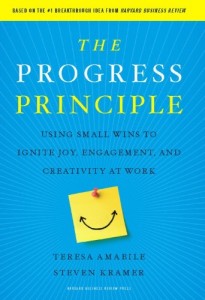You probably have concluded by now that Ben and I share a strong pet peeve regarding the practice of rudeness and arrogance, especially concerning managers' attitudes and behaviors toward new agent candidates. Like an abusive individual who is dating, an arrogant manager might attract a few desperate, insecure partners, but they're guaranteed to miss the cream of the crop.
 Furthermore, new evidence suggests that rudeness impacts even more than successful hiring:
Furthermore, new evidence suggests that rudeness impacts even more than successful hiring:
In three experimental studies, the simple act of being a witness to rudeness displayed by a peer or an authority figure toward someone, significantly reduced the observer's performance in routine tasks, as well as creative tasks. In addition to this, rudeness appeared to be contagious. The observer became less civil to others.
So why does rudeness persist? Why do we allow people, especially managers, who impact so many, get away with it and set the contagious behavior in the office? My hypothesis is that when the economy was booming, some arrogant-prone people attributed the success of their office to themselves, rather than the profound amount and frequency of money changing hands. And, like an abusive spouse, people became so attached to these people that everyone just accepted their behavior. Some of these people may never revert back to a spirit of humility and kindness to others, while some will hopefully change.
A few years ago, I had the unfortunate experience of witnessing this phenomenon first hand, while I watched the performance of my son's high school varsity basketball team over a period of three years. No one doubted the coach's knowledge and strategy when it came to basketball, and everyone was aware that he had inherited some excellent players and had the opportunity to do very well. But, the coach was a bully. Not to everyone…just to the players who weren't the stars. He clearly disrespected the players that he didn't see as huge contributors. The result was a team who consistently underperformed.
This research confirms what all of the parents suspected: The bullying of some players impacted the performance and creativity of all players.
The implications of these studies are too important to ignore. It's not just the victims of rudeness who are impacted, rather everyone. Much as second hand smoking impacts everyone within inhaling range, rudeness impacts everyone within earshot. In these current times, where we must squeeze out as much performance and creativity as possible, how much rudeness can we afford to ignore?
Source:
Porath, C. and Erez, A. (2009). Overlooked but not untouched: How rudeness reduces onlookers’ performance on routine and creative tasks, Organizational Behavior and Human Decision Processes, 109 (1), 29-44
Editor's Note: This article was written by Dr. David Mashburn. Dave is a Clinical and Consulting Psychologist, a Partner at Tidemark, Inc. and a regular contributor to WorkPuzzle. Comments or questions are welcome. If you're an email subscriber, reply to this WorkPuzzle email. If you read the blog directly from the web, you can click the "comments" link below.











